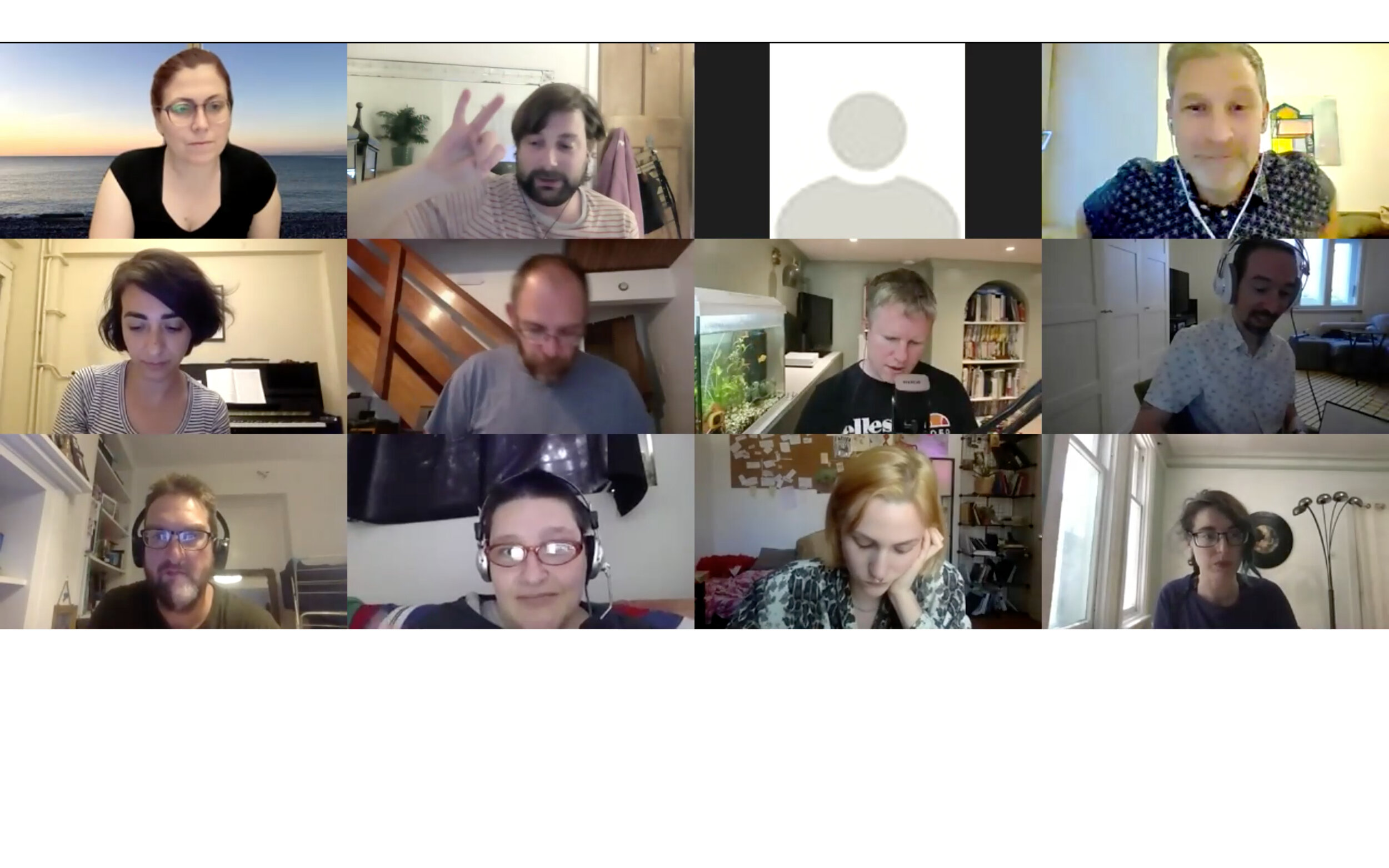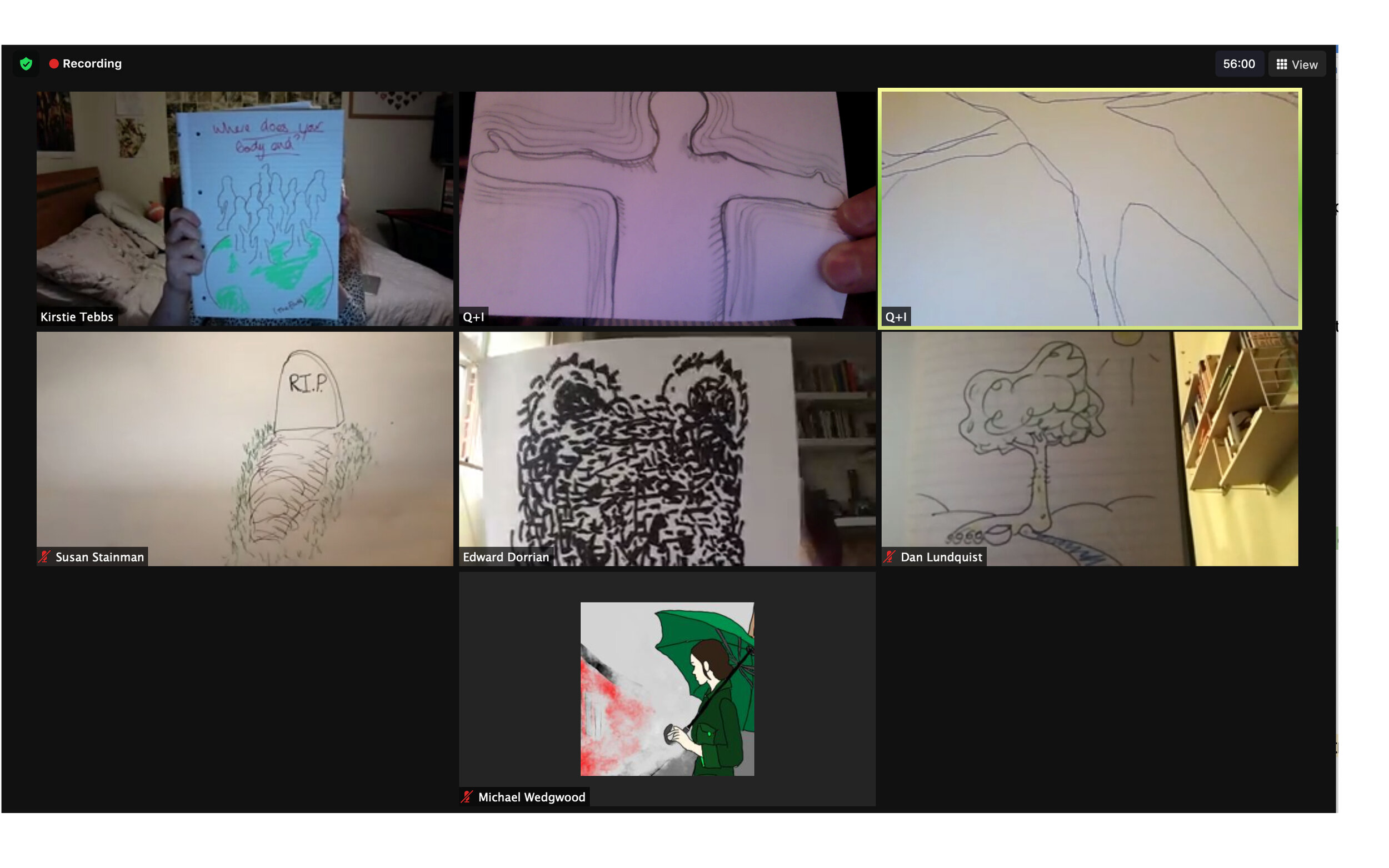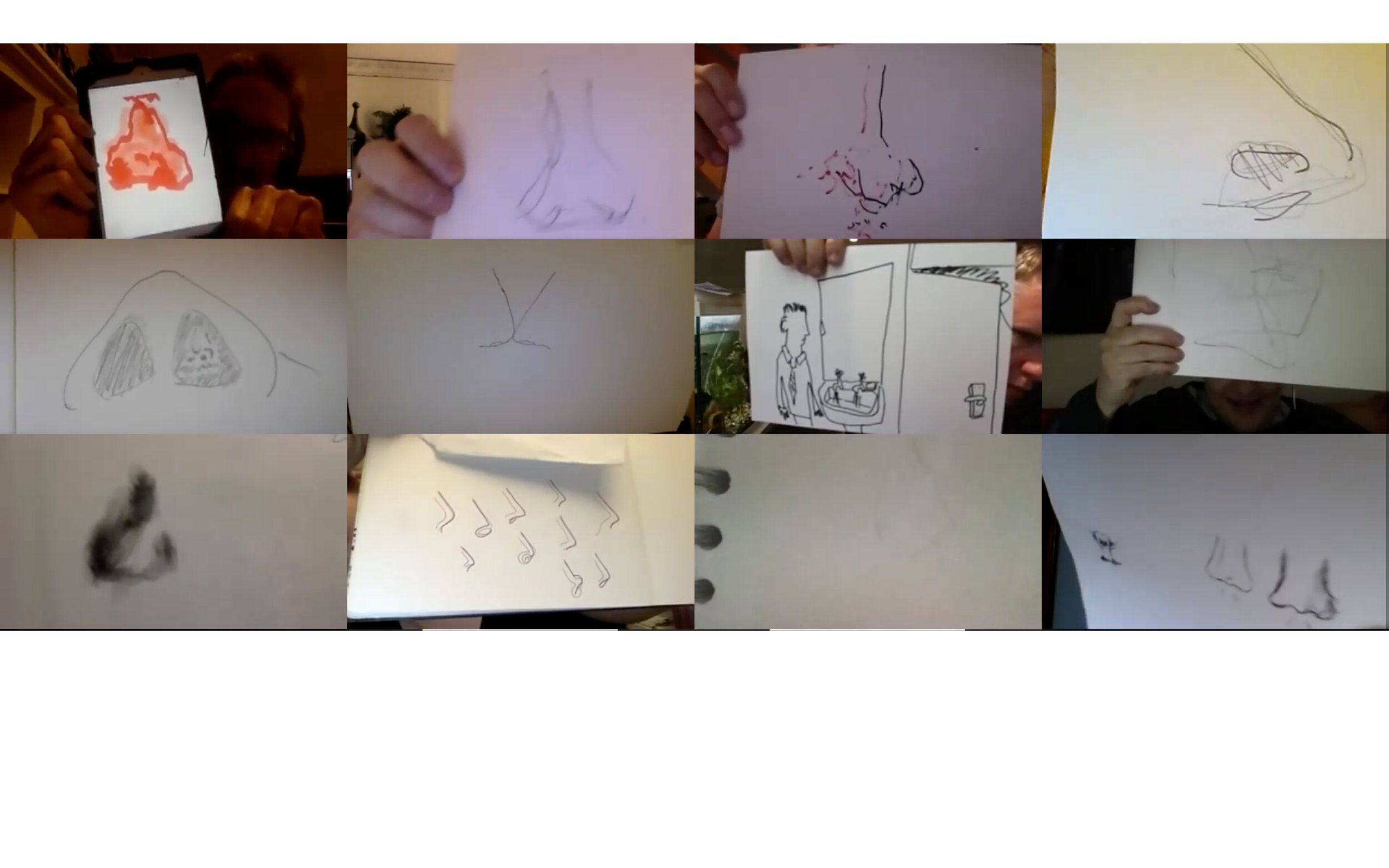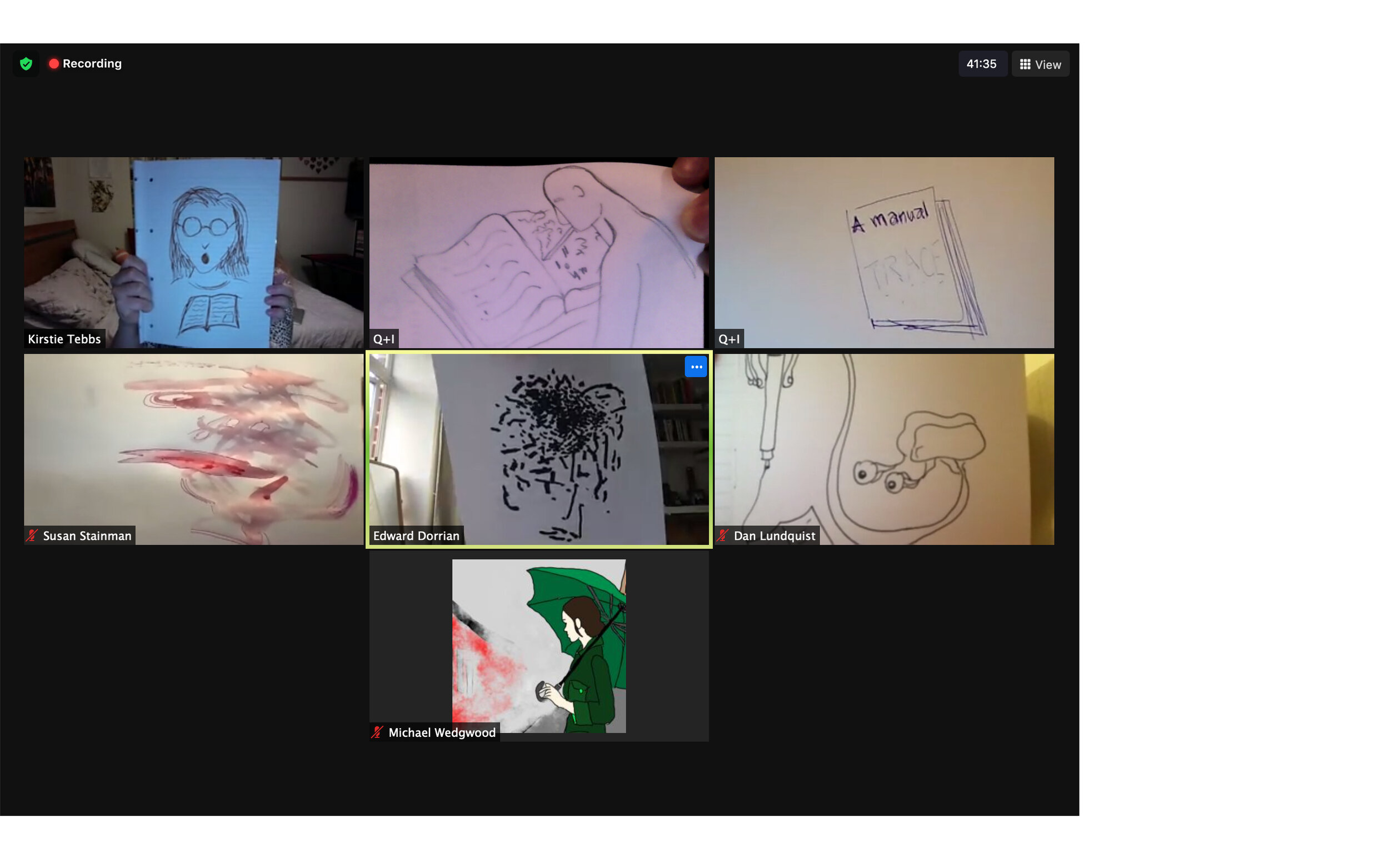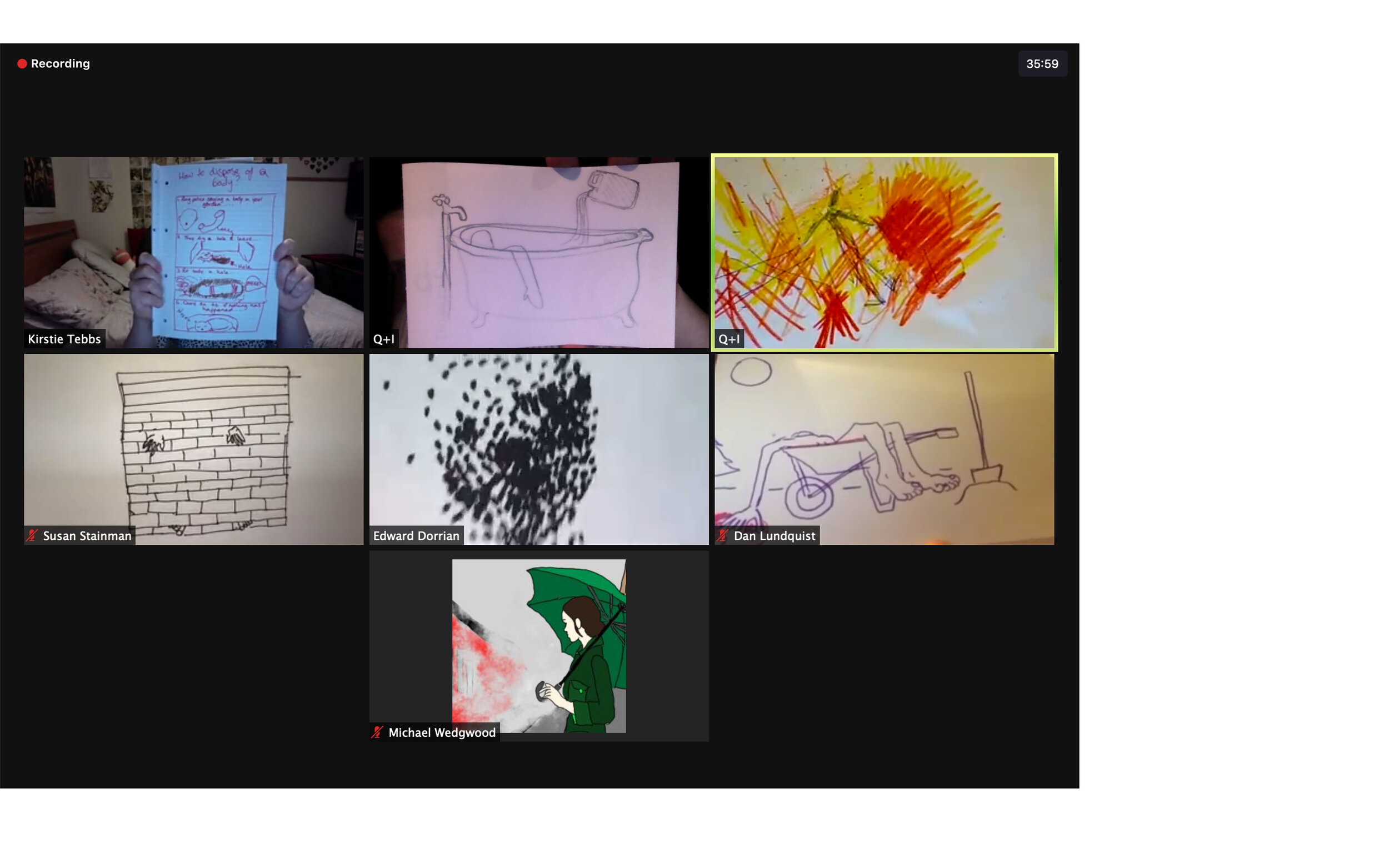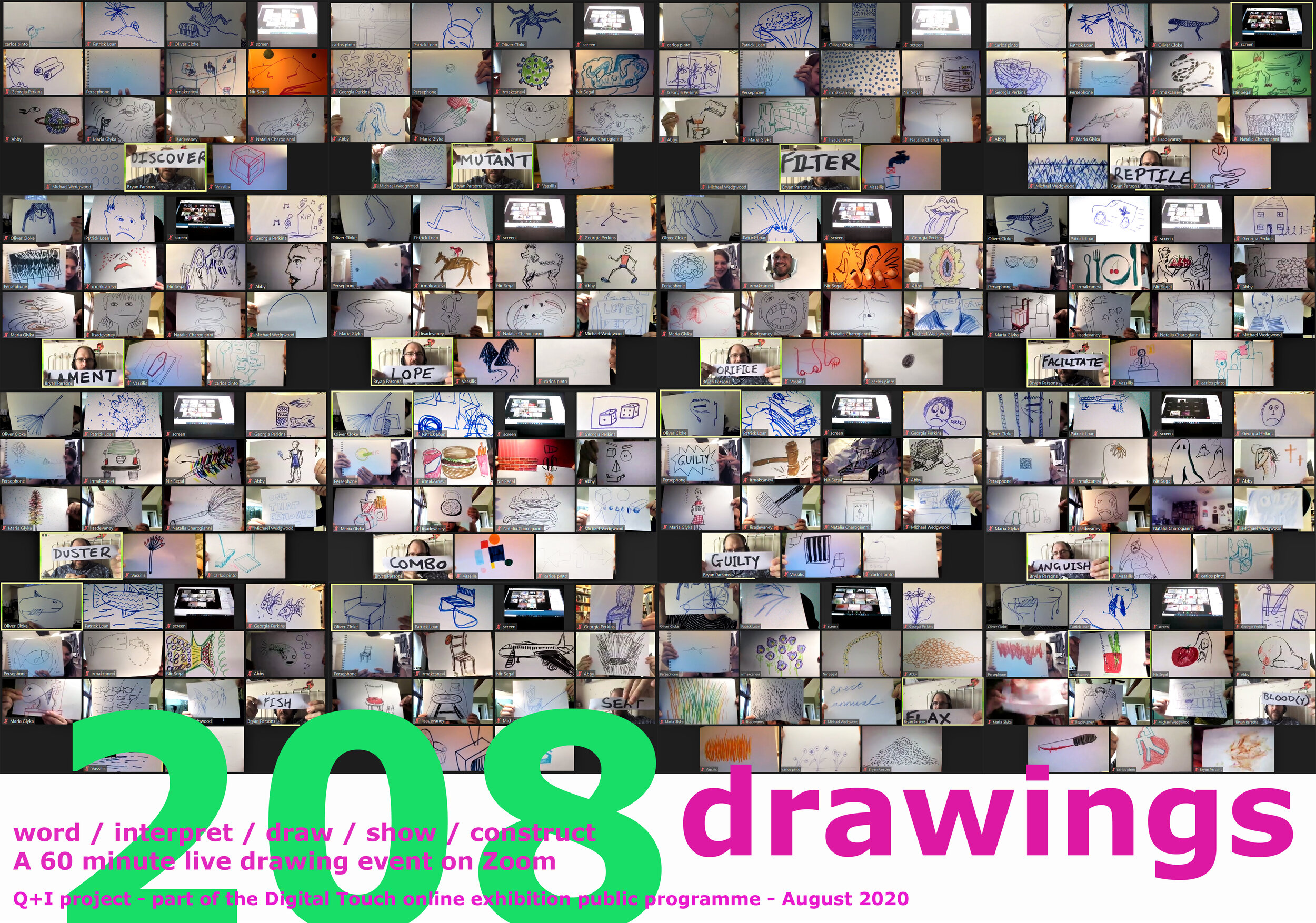(Q+I)
(Q+I) is a project put together by myself and Patrick Loan. Our projects are interested in how ideas permeate the consciousness - how can artworks be documented and understood simultaneously? As well as how that looks visually, wishing to document the event of transference, connection and layering. Our work as artists has been in the realm of event based performances, mostly they are fixed into short durations, which has allowed for an exploration of language; and how, and why we communicate. A lot of our work has been centred around words and language, how we understand and use words. Exploring the limits of that has opened up multiple conversations. We conceive of a space in which the public can build their own narrative (either in a physical space, or as our practice is shifting in a virtual space), and feel the ability to respond to artworks in any way they wish, to enable the expansion and extension of artworks. Examples are below.
MCCT and other conferences
"The creative process is an end in itself; it is a performance, an improvisation, a journey into the unknown." - George Maciunas
Within the realm of contemporary art and intellectual discourse, the exploration of the creative process as an aim in and of itself has gained significant momentum in recent years. This interest reflects the broader societal tensions between economic productivity and output, and the fundamental meaning found within the endeavours themselves. Our central objective for this stream is to challenge the value of outcome over process, and explore the implications of elevating the act of creation itself above any tangible end result. How might this shift in perspective impact artistic practice, intellectual inquiry, and our broader cultural landscape? Through interdisciplinary dialogues, the presentation of diverse case studies and participatory actions, we aim to create a space to explore the potential transformative power of process-centred approaches. In consideration of hierarchical structures, capitalistic systems, emerging technologies, rapid development of AI and growing economic strain, the case could be made that the pressure to produce outcomes with economic value is intensifying. Drawing inspiration from the avantgarde movement Fluxus, known for its emphasis on intermedia, performance, and dematerialization of art, we would like to challenge traditional art and societal boundaries. Our aim is to unite diverse voices and prompt reflection on the enduring relevance of 'process' in contemporary artistic and intellectual discourse, challenging the prevailing emphasis on final outcomes. We invite submissions for presentations, demonstrations, performances or experimental workshops from across disciplines.
Do we care how we get the result (e.g. using AI to produce music), as long as the outcome is what we want? This stream, for us, represents a unique opportunity to invite participants to observe, reflect and reimagine the possibilities, good or bad, of pursuit without a goal. We aim to bring together a diverse community of artists, academics, theorists, and writers for transformative discussions and innovative thinking that can help precipitate developments across the realms of art, academia, and beyond.
The audience and Carali McCall at MCCT
ONline workshops
As (Q+I) we performed our experimental drawing projects, we sought to create dialogue between scholars, artists, community members, and experts in all fields, bringing them together to share their expertise and unique perspectives. These participatory live drawing workshop events on Zoom were hosted by various institutions. Each participant who registered for the workshop was given the opportunity to think of either an instruction (within the limitations of the workshop, a limited amount of time, simple drawing materials), or a question to give to the other participants to make a drawing of – these will be chosen randomly during the workshop. The duration for each drawing varied - no more than 5-minutes, on a sheet of paper. All participants needed was paper and drawing implements (marker pens, pencils etc).
An image from the video entered
Bad ART
The Bad Video Art Festival proposes to study extreme forms of video art. According to the curators, videos shown at the festival are at the intersection of bad art, bad painting and bad cinema (B-movies, cult, camp, trash) but still have not been introduced as an independent category for profound studying. For the first time ever the conception of B-video will be presented to the public in the gallery in order to initiate a discussion and further studies.
We produced some knowingly ‘bad art’ in order to ask questions about our own practice and how bad we could actually make it?
Dispensary Gallery
This research lead art gallery in Wrexham with a dynamic programme of exhibitions and events brings together local, national and international artist researchers, providing both a supportive hub and a space to display their work. They interviewed artists to see how they were coping and adapting during lockdown.
We talked about our practice and the work that has come about during the pandemic.
a section of video (note the colours)
one of the many outcomes from the project.
Digital Touch
Commissioned by ‘Conscious Isolation’ This project proposes: ‘Listening to cacophony and noise tells us that there is a wild beyond to the structures we inhabit and that inhabit us.’ This can be seen in the larger project Lockdown drawings, where words sent out to participating artists are interpenetrated and a 2 minute drawing is produced. It is really interesting to see how individual words are understood, where general consensus and lexicon differ from each other. The way of viewing each word brought out differences in interpretation, whether it was the meaning or the making of the drawing.

